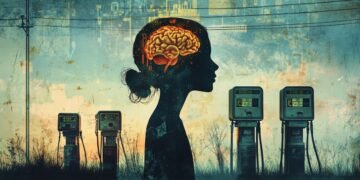In the hustle and bustle of modern life, we often find ourselves lost in the maze of daily responsibilities, social expectations, and the relentless pursuit of success. Caught in this whirlwind, we sometimes neglect the most crucial aspect of our existence: understanding ourselves. Yet, within the pages of a book lies a powerful tool that can guide us on a profound journey of self-discovery and introspection. Reading is not merely a pastime; it is a portal to the depths of our being, offering insights that can transform our lives.

The Mirror of Literature
Literature, in its myriad forms, acts as a mirror, reflecting our innermost thoughts, fears, desires, and aspirations. When we read, we engage in a dialogue with the author, but more importantly, we embark on a conversation with ourselves. Novels, poems, essays, and even non-fiction works challenge our perspectives, evoke emotions, and stimulate our imaginations. They allow us to step into the shoes of characters who might be vastly different from us or eerily similar, offering a glimpse into the complexities of human nature.
Take, for instance, the classic novel “To Kill a Mockingbird” by Harper Lee. Through the eyes of Scout Finch, readers witness the struggle against racial injustice in the Deep South. The narrative prompts us to reflect on our own biases, compassion, and courage in the face of inequality. Similarly, reading Virginia Woolf’s “To the Lighthouse” invites us to explore the nuances of relationships, time, and memory, compelling us to consider our own experiences within these themes.
The Healer of Emotions
Books have a unique ability to heal. They offer solace in times of sorrow, inspiration during despair, and comfort in moments of loneliness. When we are grieving, a poignant poem or a heartfelt memoir can validate our feelings, making us feel less alone. In times of joy, a celebratory novel or an uplifting self-help book can amplify our happiness, reminding us of the beauty in life.
Emotional healing through reading is a two-way street. On one hand, we find catharsis in the stories that mirror our own struggles. On the other, we learn to empathize with characters who face challenges different from ours, broadening our capacity for understanding and compassion. This empathy, in turn, fosters resilience and emotional intelligence, enabling us to navigate life’s ups and downs with greater grace.
The Catalyst for Growth
Reading is a catalyst for personal growth. It exposes us to new ideas, perspectives, and cultures, broadening our horizons and stimulating intellectual curiosity. As we engage with diverse viewpoints, our minds become more agile, our critical thinking skills sharpen, and our creativity flourishes. This intellectual growth is crucial for self-awareness, as it encourages us to question our beliefs, values, and assumptions.
Self-help books, in particular, play a pivotal role in personal development. From “How to Win Friends and Influence People” by Dale Carnegie to “The Power of Now” by Eckhart Tolle, these works provide practical guidance on how to improve our interpersonal skills, manage stress, and live in the present moment. By applying these principles, we can cultivate a more mindful, compassionate, and effective version of ourselves.
The Bridge to Inner Peace
In a world filled with noise and distraction, reading offers a sanctuary where we can find inner peace. By immersing ourselves in a book, we create a mental space free from the clutter of everyday life. This quietude allows us to connect with our inner selves, listen to our intuition, and tap into our creative potential.
Spiritual and philosophical texts, such as the Bible, the Quran, the Tao Te Ching, or the works of philosophers like Socrates, Plato, and Kant, offer profound wisdom on the nature of existence, the purpose of life, and the path to enlightenment. These texts can inspire us to seek meaning, purpose, and harmony within ourselves and the world.
The Art of Reflection
To truly harness the power of reading for self-awareness, it is essential to practice reflection. After finishing a book, take time to ponder on what you have read. Ask yourself: How did this story resonate with me? What emotions did it evoke? What insights did I gain about myself or the world? Writing down your thoughts in a journal can further deepen this process, allowing you to articulate and solidify your reflections.
Reflection also involves applying what you have learned to your daily life. Try to incorporate the lessons from the books you read into your actions, decisions, and relationships. This practical application not only reinforces your understanding but also contributes to ongoing personal growth and development.
Conclusion: A Lifetime Journey
Reading is a lifelong journey of self-discovery. It is a tool that can illuminate the darkest corners of our minds, heal our wounds, nurture our growth, and guide us to inner peace. As we traverse the pages of books, we uncover not only the stories of others but also the hidden truths within ourselves. Through this journey, we learn to embrace our complexities, celebrate our uniqueness, and find our place in the vast tapestry of life.
So, pick up a book today. Let it be your guide, your mentor, and your companion on this profound path of self-awareness. For in the words of C.S. Lewis, “We read to know that we are not alone.” And in knowing this, we find the courage to live authentically, compassionately, and courageously.











































